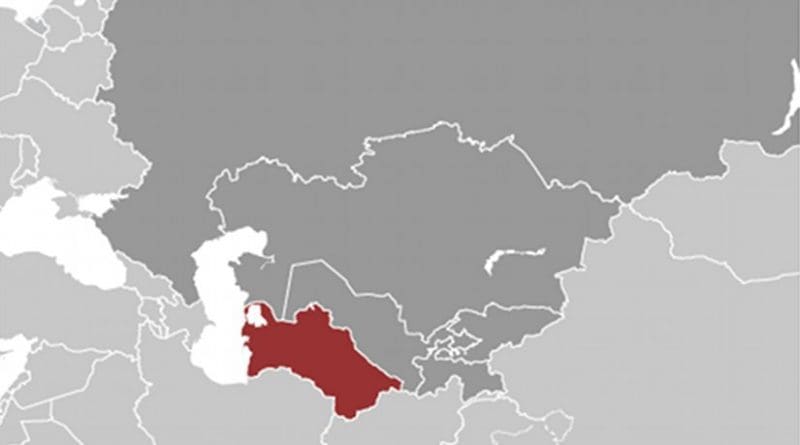Turkmenistan Most Likely Islamic State Target In Central Asia, Moscow Analyst Says – OpEd
By Paul Goble
If one considers the factors that powered the rise of ISIS in Iraq and Syria – political instability, a weak counter-terrorism policy, Sunni predominance, and enormous natural resources — Dzhamiliya Kochoyan says, one is driven to the conclusion that Turkmenistan is at greater risk of an ISIS attack than any other country in Central Asia.
The Regnum analyst points out that “to find information about any political aspect of Turkmenistan is quite difficult” because it is “a closed republic, the foreign political strategy of which is based on the principles of positive neutrality” but several recent developments have exposed its vulnerabilities (regnum.ru/news/polit/1947695.html).
These developments have highlighted three risk factors: First, as in Iraq, she writes, “terrorists in Turkmenistan can unleash clashes along the Afghan-Turkmen border,” a place that from a security point of view is “the ‘Achilles’ heel’ of Turkmenistan” and one that makes that country an especially tempting target for militants connected with ISIS.
Problems along the border are made worse by the weakness of the Turkmenistan military. Not only has it been unable to conduct an effective draft, but it has seen the size of its forces fall from 200,000 to 50,000. Moreover, Kochoyan writes, Ashgabat has not developed a serious anti-terrorist program or thought how to defend the country given “the absence of natural barriers.”
Second, ISIS strategy in the past has focused on the seizure of energy resources so as to be able to sell them in order to finance ISIS military and terrorist activities. At present, Kochoyan says, Turkmenistan has the fourth largest natural gas reserves in the world — and most of them are undeveloped.
And third, ISIS is most effective when it is operating in a Sunni Muslim area. “The overwhelming majority of Muslims” in Turkmenistan are Sunni; and the ethnic Turkmens in Mary velayat are primarily Sunni as well. That makes the Mary district a doubly attractive target for ISIS: it has human resources and it has natural gas.
Kochoyan’s argument is cogent, but there are two caveats to that conclusion. On the one hand, as she points out, outsiders know less about Turkmenistan than they do about any other country in the region. Consequently, much that is written about it is speculative rather than based on hard evidence.
And on the other, Russian commentators and especially those linked to agencies like Regnum have an agenda: they want to force Ashgabat to give up its neutrality and join the Moscow-led camp. Suggesting that Turkmenistan can’t defend itself against ISIS and that no one but Russia will is a powerful argument from that perspective.

